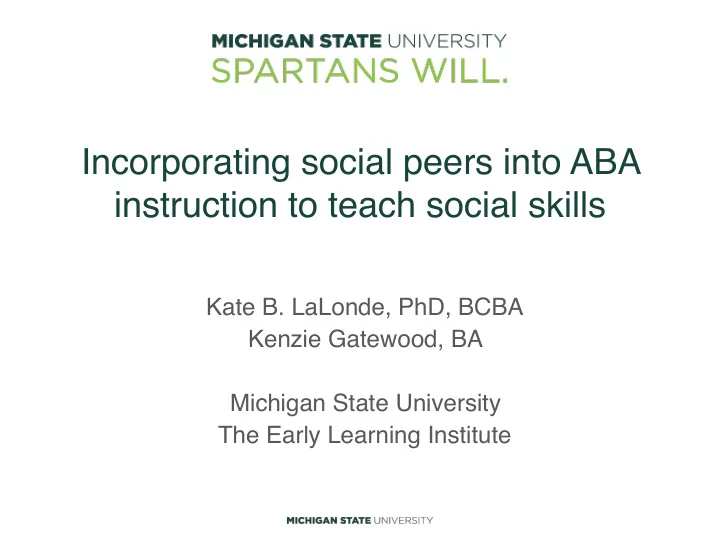

Incorporating social peers into ABA instruction to teach social skills Kate B. LaLonde, PhD, BCBA Kenzie Gatewood, BA Michigan State University The Early Learning Institute
The Typical Therapeutic Environment
Children’s Toddler School San Diego, CA Stahmer & Ingersoll (2004) Project DATA Seattle, WA Schwartz et al., (2004) Walden Model Atlanta, GA McGee et al., (1999) MSU’s Early Learning Institute East Lansing, MI
Meaningful
Incorporating social partners without autism Center-based Programs Home-based Programs
Incorporating social partners without autism Center-based Home-based Siblings Siblings Cousins Cousins Staff’s children or friends Staff’s children Neighbors Staff’s friends
The Process of Including Peers Determine social Determine Carry out Assessment Coach Peer behaviors to social activities Activities target
Assessment
Selecting Skills Possible Social Skill Targets Level 1 Level 2 Level 3 • Staying within 1 foot of • Requesting to peers • Pretend play peer • • • • Responding to peer • Playing a board game • Accepting items requests • • • • Advanced mands • Passing items • Finishing an activity • • together • Labeling to each other • Looking at peers • • • • Social games • Responding to labels • Parallel play • and conversations • • Peek-a-book • • Increasing value of • peers • Hide-and-seek
Selecting Activities Do social peers dig it? Do adults know skills to teach? Is it repetitive? Do peers need each other?
Coach Peer
Implement activities
Kate LaLonde lalond18@msu.edu
Recommend
More recommend